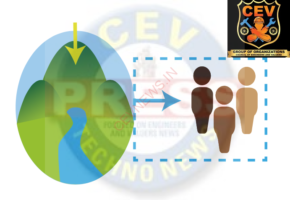RIGHTS AND RESPONSIBILITIES OF VALUERS: ETHICAL PERSPECTIVES
Rights and Responsibilities of Valuers: Ethical Perspectives
Valuation, an integral part of various industries, holds significant importance in India’s economic landscape. However, the practice of valuation demands not only expertise but also adherence to ethical standards. In this article, we delve into the rights and responsibilities of valuers from an ethical standpoint.
1. Right to Independence
Valuers have the right to maintain independence in their assessments. This entails the freedom from any undue influence or bias that could compromise the integrity of their valuation. Independence ensures that valuers can provide unbiased opinions, essential for maintaining trust in the valuation process.
2. Responsibility for Accuracy
Accuracy forms the cornerstone of valuation. Valuers hold the responsibility to ensure that their assessments are precise and based on thorough analysis. Any errors or inaccuracies can have far-reaching consequences, affecting stakeholders’ decisions and financial outcomes.
3. Right to Professional Judgment
Valuers possess the right to exercise professional judgment in their appraisals. This involves the application of expertise, experience, and ethical principles to arrive at fair and reasonable valuations. Professional judgment enables valuers to navigate complex valuation scenarios effectively.
4. Responsibility for Confidentiality
Confidentiality is paramount in valuation practices. Valuers are entrusted with sensitive information regarding assets, businesses, or properties. They must uphold confidentiality to safeguard the interests of clients and maintain trust in the valuation process.
5. Right to Fair Compensation
Valuers have the right to fair compensation for their services. Fair compensation acknowledges the expertise and effort invested by valuers in conducting thorough assessments. It also ensures sustainability in the valuation profession, attracting skilled professionals.
6. Responsibility for Transparency
Transparency fosters trust and credibility in valuations. Valuers bear the responsibility to maintain transparency throughout the valuation process, disclosing relevant information and methodologies used. Transparent practices mitigate the risk of conflicts of interest and enhance stakeholders’ confidence in valuation outcomes.
7. Right to Continuing Education
Continuous learning is essential in the valuation profession, given the evolving market dynamics and regulatory frameworks. Valuers have the right to access ongoing education and professional development opportunities to enhance their knowledge and skills. This empowers them to deliver high-quality valuations aligned with the latest industry standards.
8. Responsibility to Uphold Ethical Standards
Ethical conduct is non-negotiable for valuers. They must adhere to stringent ethical standards, including integrity, objectivity, and professional behavior. Upholding ethical principles is crucial for maintaining the credibility of the valuation profession and fostering trust among stakeholders.
The rights and responsibilities of valuers in India are underpinned by ethical considerations. By upholding independence, accuracy, professional judgment, confidentiality, fair compensation, transparency, continuing education, and ethical standards, valuers play a pivotal role in ensuring the integrity and reliability of valuation practices. Embracing these ethical perspectives not only elevates the professionalism of valuers but also safeguards the interests of all stakeholders involved.


